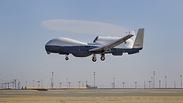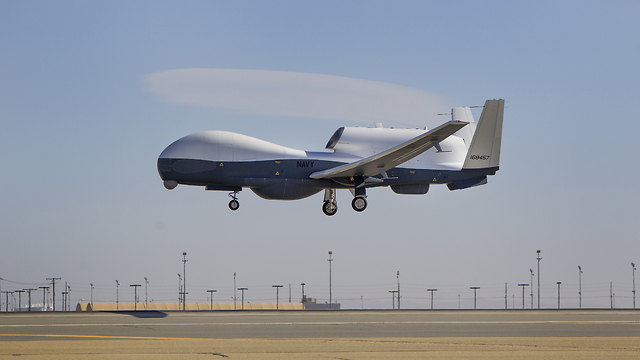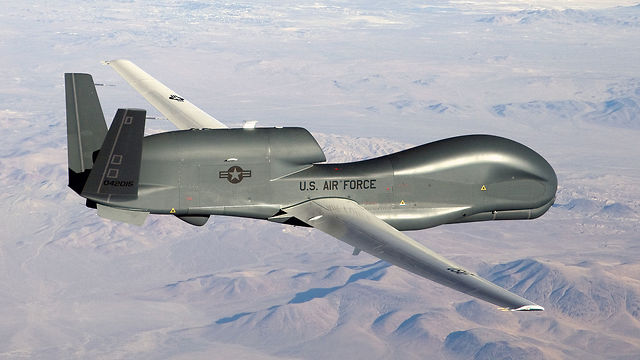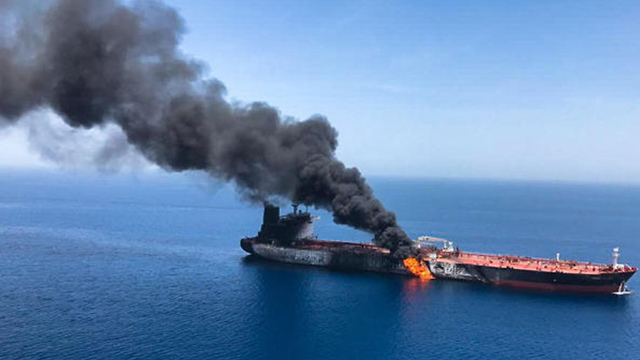
U.S. sources confirm Iran shot down American drone
Iran's state news agency claims the drone was shot down when it entered the country's airspace over the province of Hormozgan; U.S. official says the drone, Navy MQ-4C Triton, was shot down by an Iranian surface-to-air missile
A U.S. military drone has been shot down in international airspace over the Strait of Hormuz by an Iranian surface-to-air missile, a U.S. official said on Thursday, speaking on condition of anonymity.
Earlier several Iranian state news agencies said a U.S. "spy" drone was shot down over the southern Iranian province of Hormozgan. State news agency IRNA even identified the drone as an "RQ-4 Global Hawk'.
The official, however, said the drone was a U.S. Navy MQ-4C Triton. No further details were immediately available, including the time of the shoot-down.
The aircraft's manufacturer, Northrop Grumman, says on its website that the Triton can fly for over 24 hours at a time, at altitudes higher than 10 miles, with an operational range of 8,200 nautical miles.
The U.S. Army initially denied the reports. "No U.S. aircraft were operating in Iranian airspace today," Navy Captain Bill Urban, a spokesman for the U.S. military's Central Command, said shortly before midnight on Wednesday.
"It was shot down when it entered Iran's airspace near the Kouhmobarak district in the south," the Guards' website added.
The U.S. military has in recent days confirmed an attempt by Iran to shoot down a U.S. drone last week as well as a successful shootdown of one on June 6 by Iran-aligned Houthi forces in Yemen.
Tension between Iran and the United States has spiked since last year when President Donald Trump exited a 2015 nuclear deal between Tehran and major powers and reimposed sanctions on the country.
Concerns about a military confrontation between Iran and the United States have mounted since attacks on two oil tankers in the Gulf of Oman last week and four tankers off the United Arab Emirates on May 12, both near the Strait of Hormuz, a major conduit for global oil supplies.
The United States and its regional ally Saudi Arabia have blamed Iran for the incidents. Iran has denied responsibility.
To counter Iran's threats, the U.S. military has sent forces, including aircraft carriers, B-52 bombers and troops to the Middle East. However, Trump said he does not seek war with Iran.
Iran said last week that it was responsible for the security of the Strait of Hormuz, calling on American forces to exit the Gulf.
In protest at Trump's "maximum pressure", in May Tehran said it would start enriching uranium at a higher level unless other European signatories to the deal protected its economy from the U.S. sanctions within 60 days.













